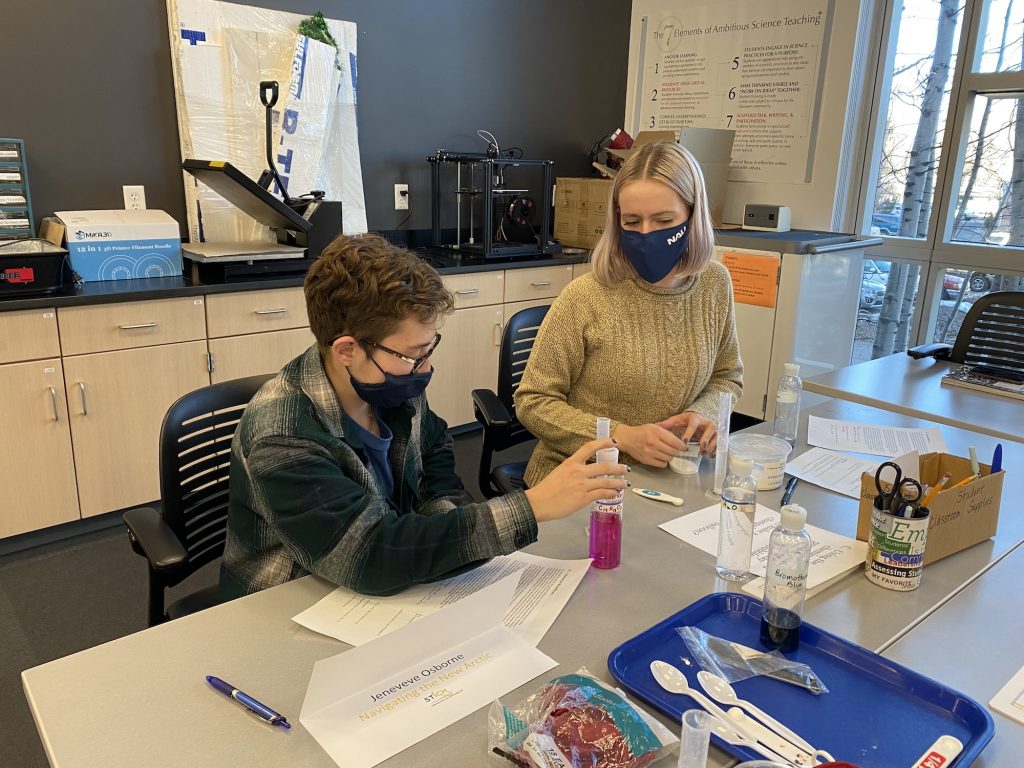Last fall , the Center for Science Teaching and Learning (CSTL) in the College of Education launched the STEM Interaction and Communication Hub (STICH) in order to more widely disseminate NAU research to the broader community through science communication and public engagement activities.
This new program was created by Nena Bloom, assistant director for the CSTL, and Tina Zecher, evaluation associate for the CSTL .
“We developed this program to involve students in the broader impacts of research conducted at the university, in order to provide more opportunities for students to participate in high impact scholarly practices, while also creating more engaging ways to disseminate research and other scholarly work at NAU to the community, through the voices of our students,” Bloom said. “Our hope is that STEM scholars become better adept at communicating science to the public and education scholars become more engaged with STEM research at NAU.”
In addition to the launch of STICH Scholars program, Bloom and Zecher were selected to be 2022 Advancing Research Impacts in Society (ARIS) Fellows. They will be systematically reviewing the relevant literature and collecting other data from involved stakeholders to create a model framework for how to best engage students in broader impacts, which will be disseminated to other universities nationwide.“Together these two projects give NAU the opportunity to be leaders in engaging interdisciplinary teams of students in science communication, broader impacts, and public engagement work,” Zecher said.
The first cohort of STICH scholars is made up of current NAU undergraduate and graduate students from a variety of disciplines, ranging from planetary sciences to secondary education. These students will collaborate with a community of other scholars in the Science Annex and engage in professional development facilitated by experts in the field to further develop science communication, public outreach and other interdisciplinary skills.
In addition to other projects, one scholar from the first cohort will be working with the CSTL’s robotics and technology program and the FIRST robotics team. The STICH scholar will be preparing materials to support robotics in rural and reservation schools, assisting in professional development activities for educators running robotics programs, identifying robot and drone products and testing out capabilities of sensors to create culturally relevant activities.
For more information on the current STICH research projects or if you are interested in becoming a 2022 STICH scholar, visit the STICH webiste.



